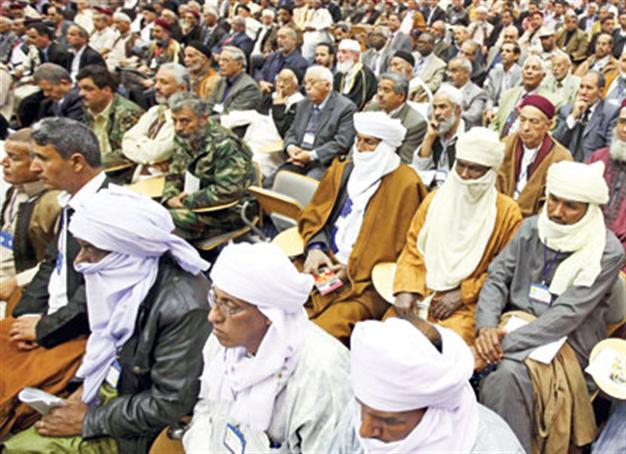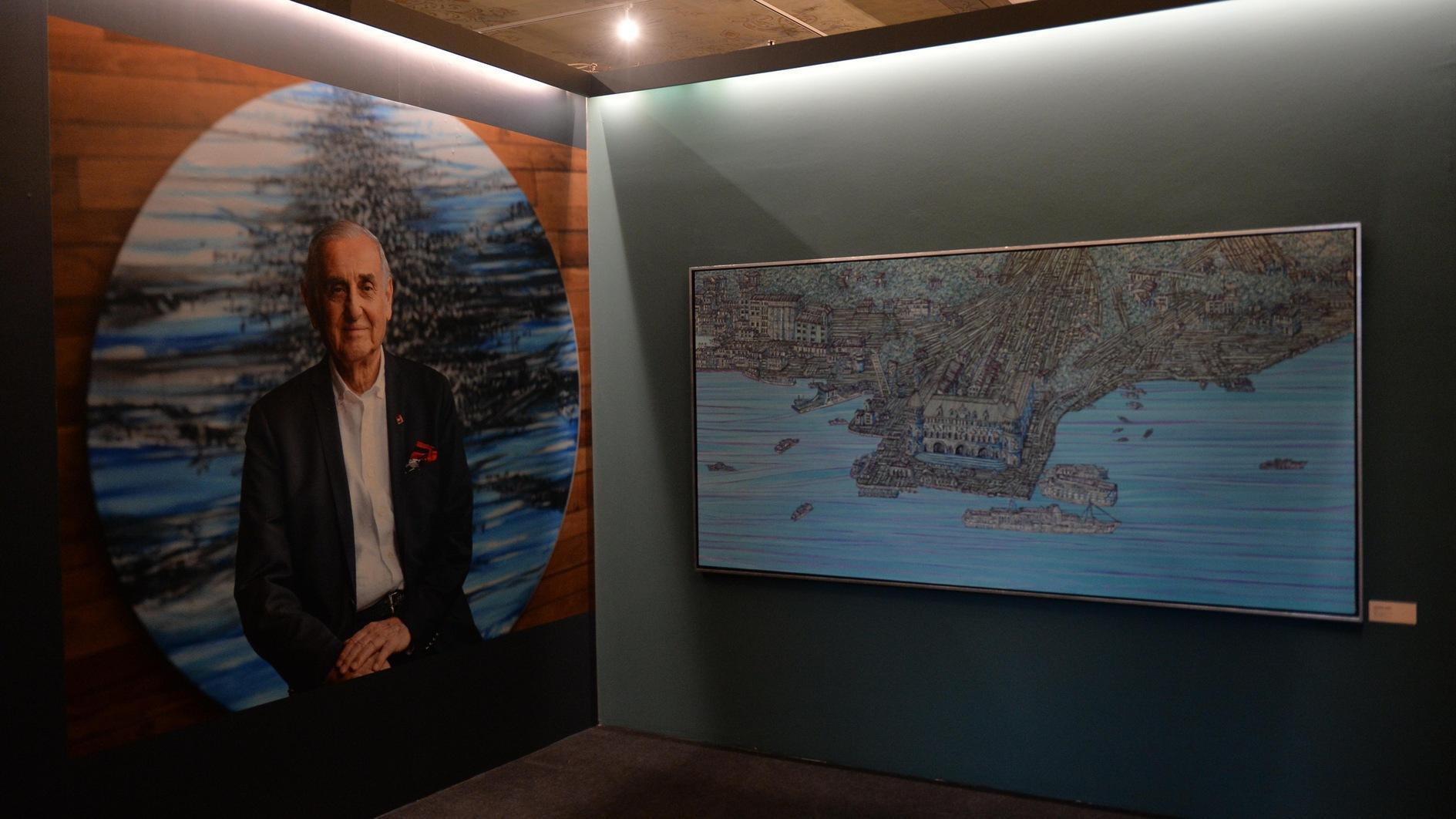Libyan tribal leaders meet to make peace
ZAWIYAH, Libya

Senior Libyan leaders attend a National Transitional Council (NTC) conference titled ‘For National Reconciliation’ in Zawiyah Nov. 26 2011. REUTERS photo
Libyan tribal leaders met Nov. 26 with hopes to ease tensions between clans in a country where the new central government is still weak, weapons abound and rival militias sometimes lock horns.
The National Transitional Council (NTC) convened the conference in Zawiyah, the site of a major skirmish between a militia from the coastal city and fighters from the Wershifanna tribe over a strategic military base this month.
The NTC hopes a tradition of mediation between tribal chiefs can nip such clashes in the bud. “This is a tribal society. In my tribe, there are 14 families. If I say one word, everyone will obey,” Lamin Mohammed al-Farjani, from the town of Msallata near Tripoli, told Reuters. “If the elders order it, all the weapons will be handed over. It would accelerate the process.”
At the opening of the three-day meeting, tribal leaders in traditional dress reflected the diversity of a country four times the size of Iraq, most of which is desert. Delegates wore outfits ranging from suits to flowing Tuareg robes and turbans.
The provisional government, sworn in this week and due to stay in office until elections to a constituent assembly are held next year, says improving security is a top priority. Three months after Moammar Gadhafi fled the capital, armed militias ignore requests to disarm. Several militia leaders are significant political players, but most have stayed out of this caretaker government, keeping their sights trained on next year’s elections instead.
Meanwhile, Seif al-Islam, the son of deposed Libyan leader Gadhafi, will receive a fair trial and is free to select his own defense team, former Justice Minister Mohammed al-Allagui told Agence France-Presse reporters Nov. 26.
Al-Islam “will see a fair trial according to international standards” and will be “given the right to select his panel of defense from Libya or outside the country,” al-Allagui said, speaking in English. The former minister, who was replaced this week by Ali H’mida Ashur, said the trial “will be seen or monitored by the international community either officially or unofficially” and the world could “trust the Libyan justice of today.”
















